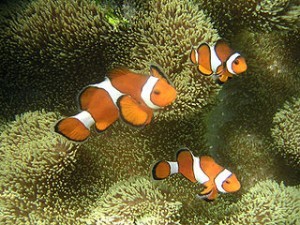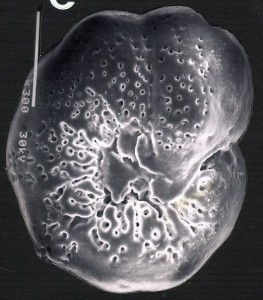Ocean Acidification: Geologic Record Adds New Warning
A new study in Science finds that the oceans may be acidifying faster today from industrial emissions than they did during four major extinctions in the last 300 million years when carbon levels spiked naturally.

As humans continue to pump carbon into the air, a closely related problem–the accumulation of carbon in the oceans–is gaining attention. In the last hundred years, we’ve raised atmospheric carbon levels by 30 percent and lowered the pH of the oceans (increasing their acidity) by an equivalent percentage. While the amount of carbon in the air and oceans has fluctuated naturally over time, a new study in Science finds that the oceans may be acidifying faster today from industrial emissions than they did during four major extinctions in the last 300 million years when carbon levels spiked naturally. The study is the first of its kind to survey the geologic record for evidence of ocean acidification over this vast time period.
“What we’re doing today really stands out,” said study lead author Bärbel Hönisch, a paleoceanographer at Columbia University’s Lamont-Doherty Earth Observatory. “We know that life during past ocean acidification events was not wiped out—new species evolved to replace those that died off. But if industrial carbon emissions continue at the current pace, we may lose organisms we care about—coral reefs, oysters, salmon.”


